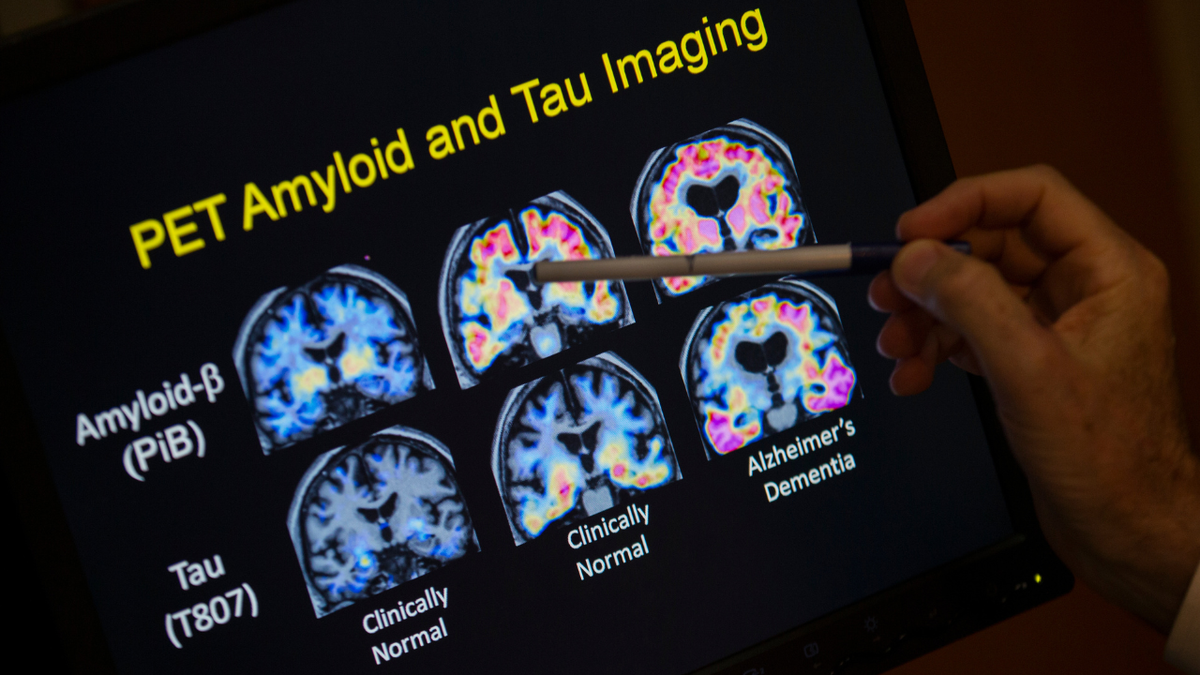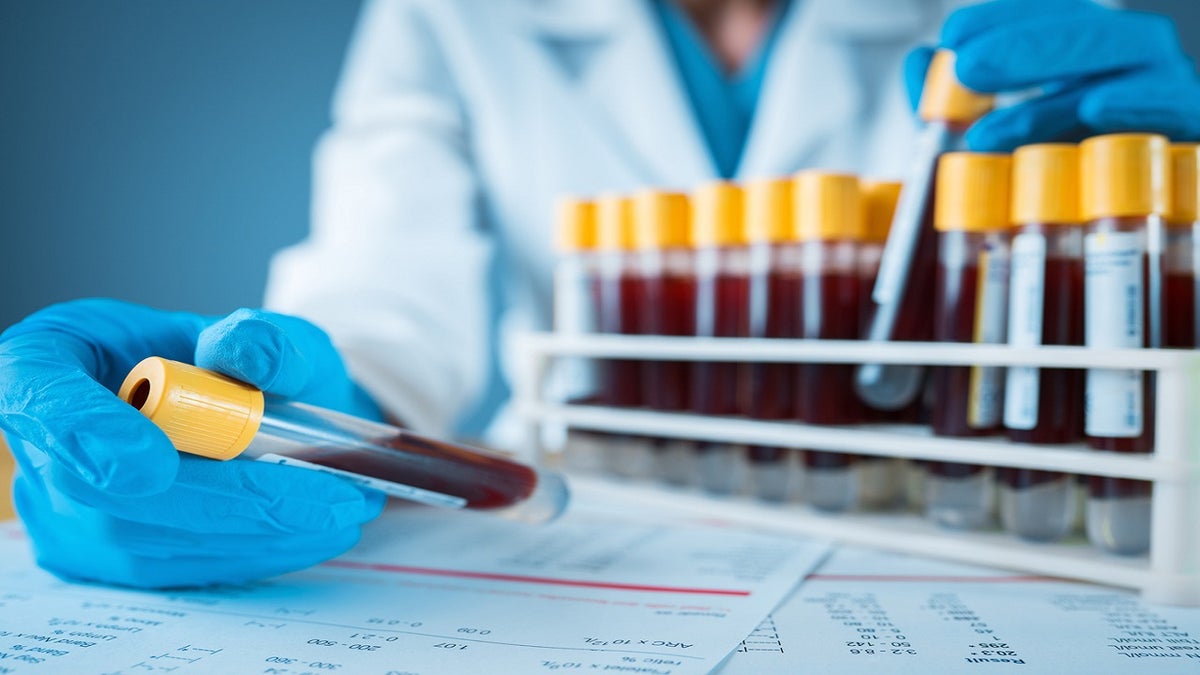Join Fox News for access to this content
Plus special access to select articles and other premium content with your account - free of charge.
By entering your email and pushing continue, you are agreeing to Fox News' Terms of Use and Privacy Policy, which includes our Notice of Financial Incentive.
Please enter a valid email address.
A simple blood test has been shown to detect Alzheimer’s disease in routine health care settings with up to 90% accuracy, according to Swedish researchers.
The findings were presented at the Alzheimer’s Association International Conference in Philadelphia on Sunday.
The test works by measuring the levels of Plasma Phospho-Tau217, a biomarker that is linked to the presence of Alzheimer’s pathology in the brain.
BLOOD TESTS FOR ALZHEIMER'S MAY BE COMING TO YOUR DOCTOR'S OFFICE: WHAT TO KNOW
It has been shown to detect the disease even before the person begins experiencing symptoms, researchers say.
"The tested blood test can detect Alzheimer’s disease with high accuracy even in real-life settings in primary care," said study author Oskar Hansson, M.D., head of the Clinical Memory Research Unit at Lund University, Sweden, in an email to Fox News Digital.

A simple blood test has been shown to detect Alzheimer’s disease in routine health care settings with up to 90% accuracy. (iStock)
It is currently difficult for primary care physicians to diagnose Alzheimer’s disease due to a lack of adequate tools, he said.
In the most recent study — also published in the journal JAMA — 1,213 people who were experiencing mild memory loss were evaluated by either primary care doctors or memory specialists.
MAYO CLINIC FINDS NEW TYPE OF MEMORY LOSS THAT’S OFTEN MISTAKEN FOR ALZHEIMER’S
The patients then underwent both the blood test and cerebrospinal fluid tests, and researchers compared the results.
"Primary care doctors’ accuracy in identifying Alzheimer’s disease was 61%, while specialist physicians were correct 73% of the time," study author Sebastian Palmqvist, associate professor of neurology at Lund University, stated in a press release.
By comparison, the blood test had an accuracy of 90%.

It is currently difficult for primary care physicians to diagnose Alzheimer’s disease because of a lack of adequate tools, according to researchers. (iStock)
"I was surprised by how well the blood test worked in real-life settings in primary care, where the patients are older and have more comorbidities like kidney disease, which can affect the blood test results," Hansson told Fox News Digital.
The main limitation of the research was that it was only conducted in Sweden.
AMID CONCERNS ABOUT BIDEN’S MENTAL ACUITY, EXPERTS REVEAL HOW COGNITIVE TESTS WORK AND WHAT THEY REVEAL
"We need studies in the U.S. and other countries to better understand the generalizability of the findings," Hansson said.
"I think it will take one or two years before there are clinical guidelines in place for use of blood tests in primary care."
Looking ahead, there is a need for clear guidelines on how doctors should use these tests in clinical practice, according to the researchers.
CLICK HERE TO GET THE FOX NEWS APP
"My prediction is that highly accurate blood tests will very soon be recommended for use in patients with cognitive impairment who are assessed at clinics specialized in memory disorders," Hansson said.

The blood test could help to reduce the need for more advanced and expensive methods, like PET scans and cerebrospinal tests. (AP Photo/Evan Vucci, File)
This could help to reduce the need for more advanced and expensive methods, like PET scans and cerebrospinal tests.
"I think it will take one or two years before there are clinical guidelines in place for use of blood tests in primary care," Hansson also noted.
CLICK HERE TO SIGN UP FOR OUR HEALTH NEWSLETTER
The researchers do not currently recommend screenings for "cognitively normal people" — as there are not any approved treatments for people with Alzheimer’s disease pathology who do not have cognitive impairment, the researcher said.

"My prediction is that highly accurate blood tests will very soon be recommended for use in patients with cognitive impairment who are assessed at clinics specialized in memory disorders," a researcher predicted. (iStock)
Added Hansson, "Further, we propose that the blood test should be used as an adjunct to, and not replacement for, the clinical assessments used today."
Approximately one in five women and one in 10 men develop dementia due to Alzheimer’s disease, according to the Alzheimer’s Association.
For more Health articles, visitwww.foxnews/health
The condition is misdiagnosed in 25% to 35% of patients who are treated at specialized clinics, previous studies have shown — and researchers believe that number is even higher for patients assessed by their primary care physicians.